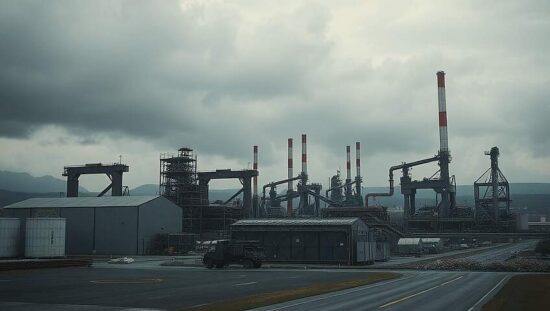The Social Democratic Party (SPD) is calling for increased governmental support for Germany’s struggling steel industry, citing significant concerns over job security. According to a draft resolution prepared for a meeting of SPD parliamentary group leaders in Saarbrücken, Chancellor Friedrich Merz and Economics Minister Katherina Reiche of the Christian Democratic Union (CDU) must now translate prior commitments into concrete action.
The SPD is advocating for the swift organization of a steel industry summit and the development of a clear roadmap to improve the political, regulatory and economic conditions surrounding the sector’s transition. This includes exploring avenues such as prioritizing the use of “green” steel in railway infrastructure projects, bolstering the national rail network with materials produced using renewable energy sources.
A key area of focus is a reduction in high energy costs. The draft resolution encourages the utilization of the European Union’s state aid framework to implement an industrial electricity price, ensuring predictable and decreased electricity costs for steel manufacturers. The planned federal subsidy for grid fees from 2026 is deemed a step in the right direction, with a continued push for extending the possibility of electricity price compensation at the EU level beyond 2030.
German steel producers are facing intense competitive pressure due to the high cost of producing “green” steel – a process that relies on electricity generated from renewable sources rather than coal. To safeguard the industry, the SPD is demanding the implementation of robust protectionist measures at the EU level to counter dumping imports and state-subsidized steel overcapacities from third-party countries.
The resolution also calls for the establishment of national and European lead markets for low-emission steel and the implementation of mandatory quotas for this type of steel in public contracts.
The steel industry contributes approximately €50 billion annually to the German economy and secures hundreds of thousands of jobs. However, the transition to a more climate-friendly production method remains a contentious issue.
ArcelorMittal, a Luxembourgish-Indian corporation, recently halted plans to build “green” steel production facilities in Bremen and Eisenhüttenstadt due to concerns about economic viability, primarily attributed to high energy prices in Germany. The company has relinquished previously approved subsidies totaling €1.3 billion and is shifting these projects to countries offering more favorable conditions. While ArcelorMittal has withdrawn its plans, other German steel manufacturers including Thyssenkrupp Steel, Salzgitter and Stahl-Holding-Saar (SHS) remain committed to their respective transformation strategies.





